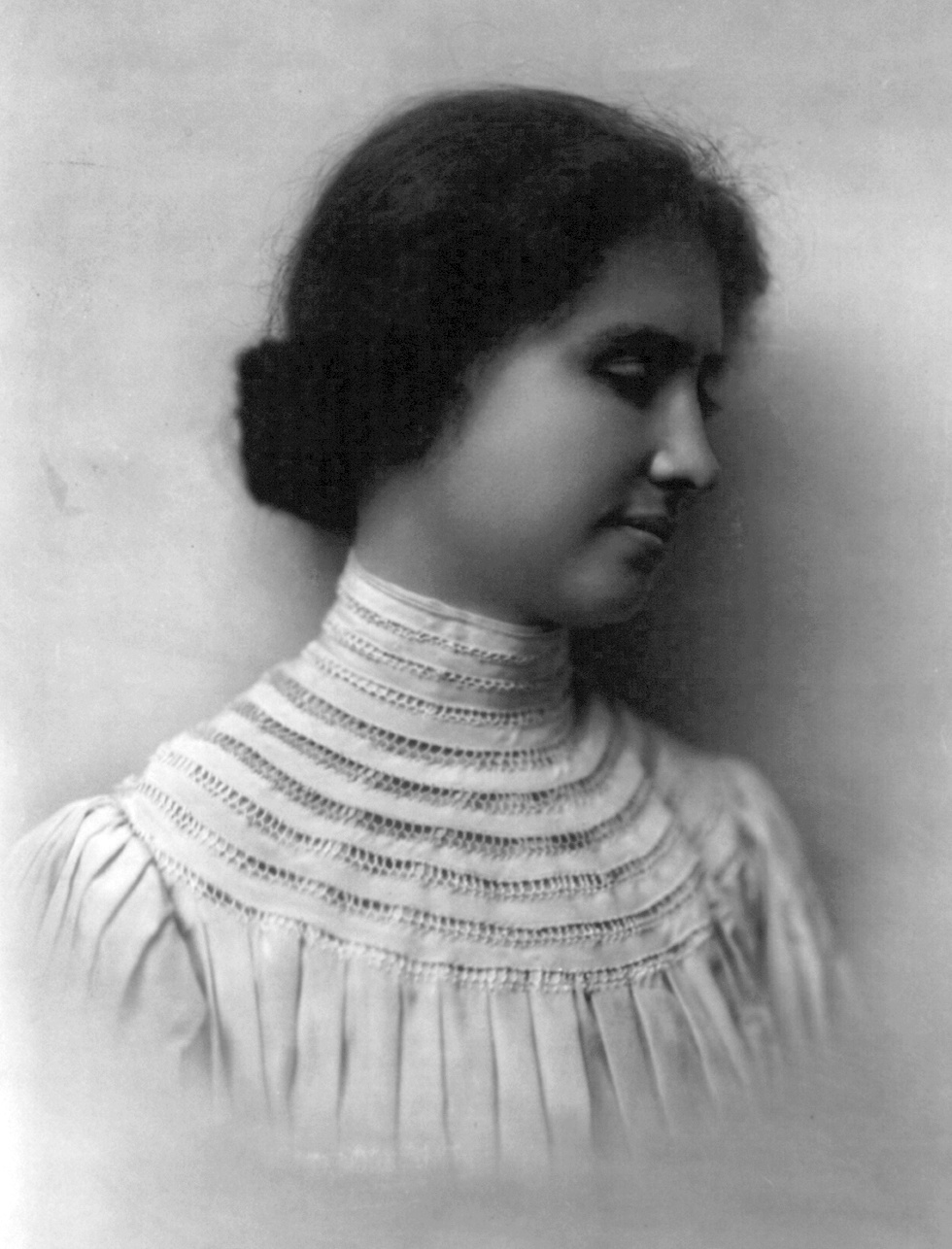
On Helen Keller: Seeing the Inner Light
In 1902, a young woman sat in a lawn chair at the dog kennels of J. Latimer Mott surrounded by her Radcliffe College classmates. A group of dogs were brought out together, but one, a Boston Terrier named Sir Thomas, trotted up to the woman and laid his head lovingly on her knee. She could neither see the dog nor hear its gentle whine as she laid her hand on its blockish head, but their connection was immediate. For 22-year-old Helen Keller, Tom was her newest companion.
Tom was a gift from a number of women in Keller’s 1904 class at Radcliffe, to help ease Keller’s sorrow following the death of her dog the year prior.
As the story of Sir Thomas shows, Keller was well liked and greatly respected by many of her peers. But some questioned her ability to keep up at a school like Radcliffe. In a correspondence between Keller’s proctor Ella J. Spooner and a friend, Spooner alluded to the disbelief expressed by many community members at the time.
She quotes an unnamed person: “Why don’t they say outright that Miss Sullivan is entering Radcliffe instead of Helen Keller, a blind, deaf and dumb girl.”
“Miss Sullivan” is a reference to Anne M. Sullivan, Keller’s longtime tutor and friend. Sullivan, originally a teacher at the Perkins School for the Blind in Watertown, was called by Keller’s father to their home in Tuscambia, Alabama, in 1888. From then on, Sullivan remained with Keller through her years at Perkins and after she was admitted to Radcliffe in 1900.

The two worked well together. Sullivan’s experience working with blind students prior to Keller, coupled with her young pupil’s natural intelligence, resulted in a very quick intellectual transformation for Keller—and, with that, fame for both of them.
Keller’s accolades range from being the first female recipient of Radcliffe’s Alumnae Achievement Award, to traveling extensively through Europe and Asia, to advocating for and educating people about the reality of living with disabilities.
She spent a majority of her adult years working with the American Foundation for the Blind, where she touched the hearts of those who worked with her. “Perhaps there lay her true genius,” wrote executive director M. Robert Barnette in the AFB’s forty-seventh annual report, released shortly after Keller’s death in 1968. “With her wisdom to free men’s minds from age old doubts about a place in society, not only for the blind and deaf-blind, but for all who were disabled.”
Nowhere is this more evident than in personal letters between Keller and her loved ones. Keller’s words evoke someone who is at once passionate, graceful, and sincere.
To a former teacher who was losing her eyesight, she once wrote, “I cannot imagine one with such quick eyes as entering the shadows. But the quiet way you speak of it makes me believe that you have the faith to bear whatever happens…. If you can only keep your thoughts towards the Inner Light, your dark hours will shine with undreamed stars.”
Keller exhibited the same compassion for those close to her and strangers alike—a compassion born at Radcliffe. “True college education acquired is a trumpet call to discover our finest capacities and turn them to achievement for the enlightenment and liberation of others,” Keller defined in her acceptance letter of the Alumnae Achievement Award. And indeed, Keller’s lifelong pursuit was the liberation of disabled members of society.
Keller’s approach to education centered around making all students feel comfortable in their abilities to live and be active, valuable members of society. From learning how to navigate busy city streets, to applying makeup, there was no task left unlearned.
Keller’s is a name we know well: She is famous for her blindness and deafness, brought on by a bout of Scarlet Fever in infancy. But above all, she was one of many women who fought for an equal opportunity to enjoy life for those born into a world that doesn’t cater to those who can’t see it.


